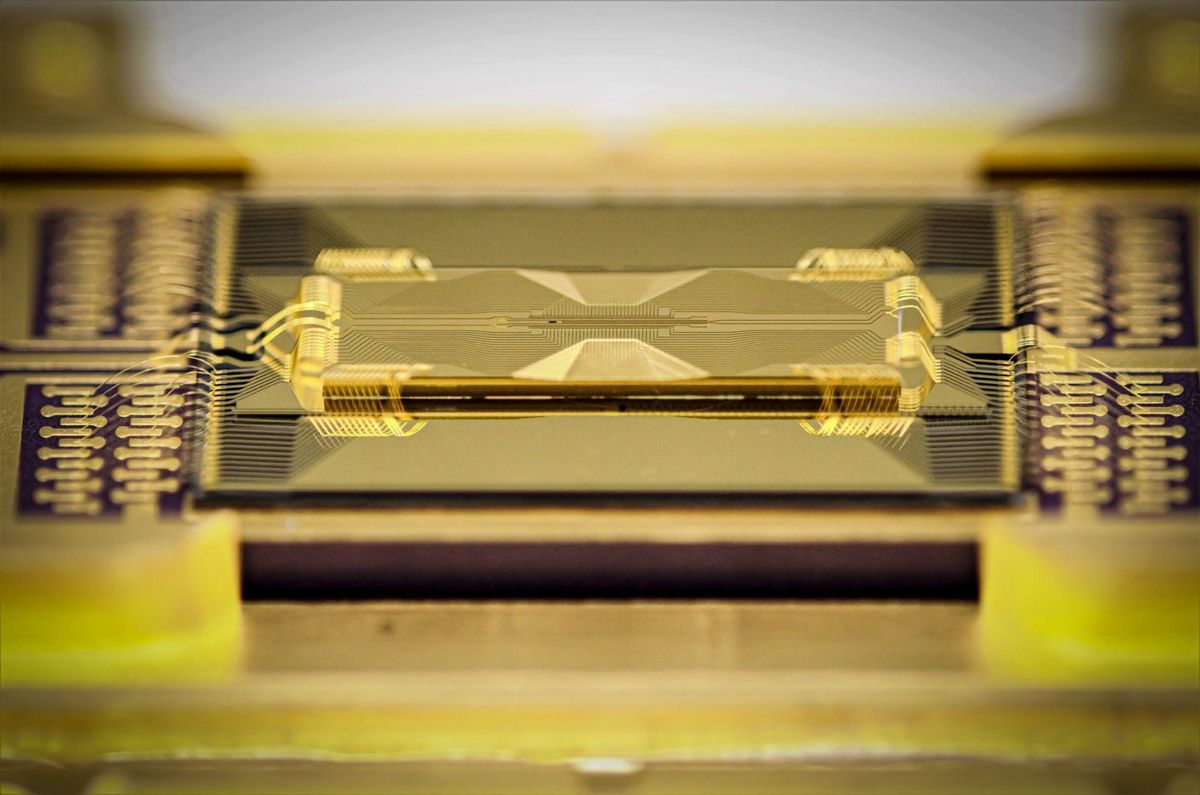If you have heard of quantum computing, you must know that the CPU is usually made up of silicon. However, a new technology has been introduced that will use glass in place of this material and the results are remarkable.
This discovery is made by IonQ, a company based in Maryland. It is affiliated with the University of Duke and its Duke Quantum Center. The researchers and scientists in their team have developed a glass-based trapped-ion computing chip. This material will make use of designs that make silicon redundant.

The glass trap will have commendable precision, i.e., the etching will have a micrometer precision level in its fused silica glass. Moreover, the computing units will have reconfigurable chains of ion-based qubits. The company has sold 34 of its machines to companies like Amazon, Microsoft Azure, Web Services, and Google Cloud. The system is described by the company as “reconfigurable multicore quantum architecture” – RMQA, for short.
There are other companies working on this technology of trapped ion philosophy to enable quantum computing scaling as well. They are AQT, Honeywell, and Oxford Ionics. The qubits in these designs are in one place. Once they interact with the ions, they are charged and work as a laser.
The team lead, Jason Amini has worked on the evaporated glass approach at IonQ. He explains, “The purpose of an ion trap is to [1] move ions around with precision, [2] hold them in the environment, and [3] get out of the way of the quantum operation.”

This technology addresses all these three points. Till now, 64 of these qubits have been made by the company. 48 of these qubits are functional and available entirely. The rest of the 16 qubits are ‘refrigerated’. This means that those are the ions that correct for system imperfections and fluctuations that might occur inside the chip. The estimated market listing of the company is around $2 billion.


